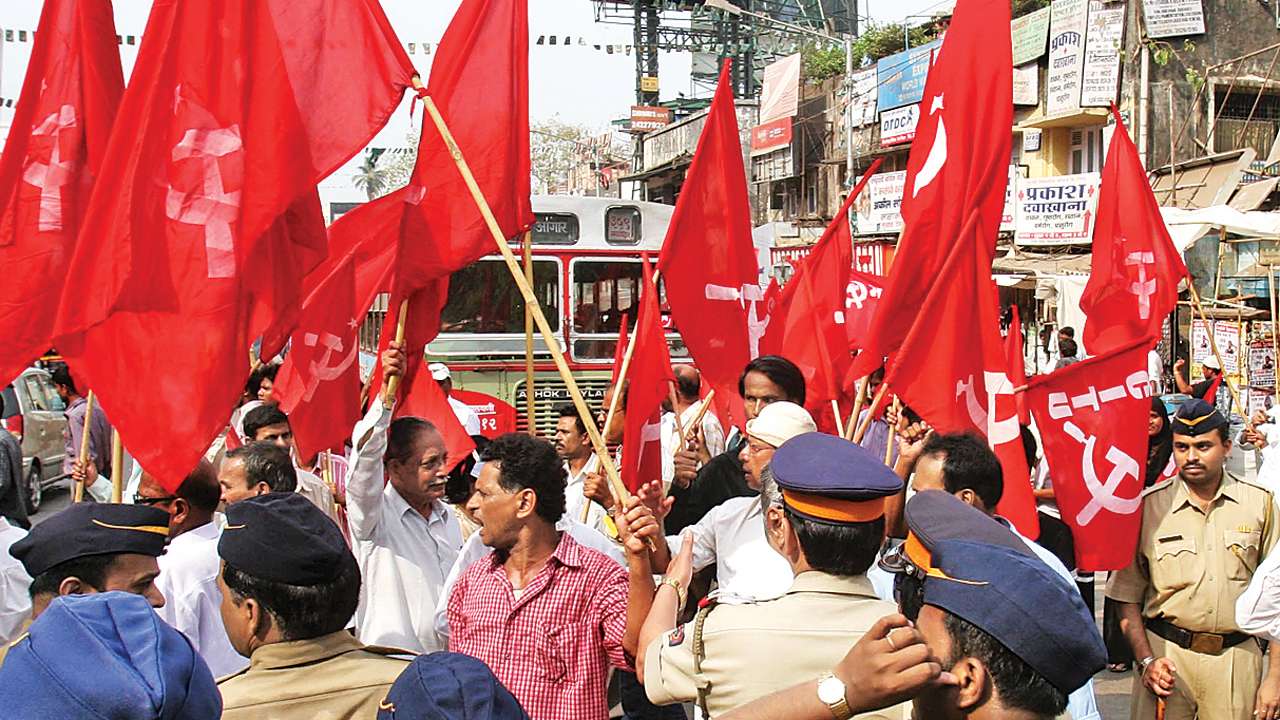
The only interesting thing about the CPI-M’s party congress in Hyderabad is that it ended without making any mark on the country’s political discourse. Unlike in the past, it even failed to generate curiosity among political parties about its political tactics. It also failed to attract the attention of the Indian masses. This is indicative of the party’s dwarfed role and reduced strength. Politics is governed by two elementary things: one, power, which means strength of a political party to influence electorates; and, second, the appeal of political actors and ideology to invigorate political equations and public opinion. Sometimes, a leader of a smaller party plays a significant role in political discourse and process due to his or her image, vision and integrity. In the past, many leaders like Jayaprakash Narayan, Acharya JB Kripalani, Dr Shyama Prasad Mookerjee, EMS Namboodiripad had larger roles than their support bases. Similarly, Bharatiya Jana Sangh (BJS) had been valued despite its low voting percentage due to ideological factors. The CPI(M) is lacking on both counts.
The party’s contemporary leadership lacks both political and organisational acumen of their predecessors like P Sundarayya, EMS Namboodiripad, AK Gopalan, BT Ranadive and Harkishan Singh Surjeet. They have no history of participating in mass struggles and their political résumés give the impression of semi-academicians – possessing the unique characteristic of imprudent plagiarism of revolutionary theories of non-Indian Marxists. They are bookish and fail to liberate themselves from the burden of Communist thoughts of the Cold War-era. They lack originality and want success in parliamentary democracy without undertaking strenuous efforts. Therefore, they redefined their Marxist tactics according to caste, religion, regional forces and parties to gain a foothold. And, in return, they legitimised the sectarianism of these parties and their leaders. Self-denial and self-goal are two features of Indian Communists. This is a reason their expansion is not in proportion to the rise of other parties and they enjoy little support from the proletariats. In brief, the party leaders are radical intellectuals rather than radical mass leaders.
The party congress has been in the news for a reason, which will fail to energise its cadres. The leadership has been debating over which is better — the Congress or the BJP — for the last two decades and still oscillates between the two. This party congress witnessed intense feuds between Prakash Karat and Sitaram Yechury factions on their association with the Congress. And, a compromise was worked out adding ambiguities to its political position. The party is more bothered to fight the RSS than building its own base, thus failing to understand that the RSS’s expansion is not a result of propaganda but due to its tireless work for the downtrodden. Its uneasiness with the RSS can be understood by the fact that the word ‘RSS’ appeared 24 times in its political resolutions. It’s using Goebelion tactics, repeating the same fictitious allegations against the RSS to delude its cadres that their Marxism means an alliance with caste-based parties, fundamentalist Muslim organisations and unhesitating collaboration with intellectuals and forces propagating the idea that India is a conglomeration of sub-nationalities. Ironically, their anti-RSSism makes them blind to even national interest as they find that “a strident anti-Pakistan position by the Indian government also feeds the BJP-RSS armoury of Hindutva nationalism and the sharpening of communal polarisation in India to consolidate their domestic position”. And the party conveniently finds “communal offensive by the RSS and its affiliates” a reason for an “increase in minority fundamentalist forces”. The CPI(M) gives a justification to the existence of Popular front of India (PFI) and Owaisi’s MIM and radical activism by Islamic forces in Kerala and Tamil Nadu.
Another big lie is that no less than 280 RSS-BJP workers have been physically eliminated in Kerala by the CPI(M) in a planned manner to obstruct its growth in the state and prevent the CPI(M) cadres to migrate into RSS. But the party document says something else, which shows it has achieved the highest stage of deceitfulness and falseness. As the party document says: “The RSS and the BJP have been conducting an all-India campaign against the CPI(M) and the LDF government falsely accusing it of targeting RSS-BJP workers to eliminate them.”
In 1978, the Salkia plenum of the party introspected germs of federalism (state units behaving as independent from each other as well as from the central unit), corruption, and bourgeoisie vices. Now all three ills have infected it from top to bottom. If the report of a Kolkata-based English daily is to be believed, the party delegates in Hyderabad enjoyed four-star accommodations. They have never been revolutionaries but had been known for austerity and simplicity. The Hyderabad party congress unravelled their moral decline, too. The blame cannot entirely be heaped on Karat and Yechury as a veteran Communist Bhupesh Gupta had aptly remarked about the CPI(M) that they suffered from ‘infantile disorder’.
The author is founding Honorary Director of India Policy Foundation, a Delhi-based think tank. Views expressed are personal.